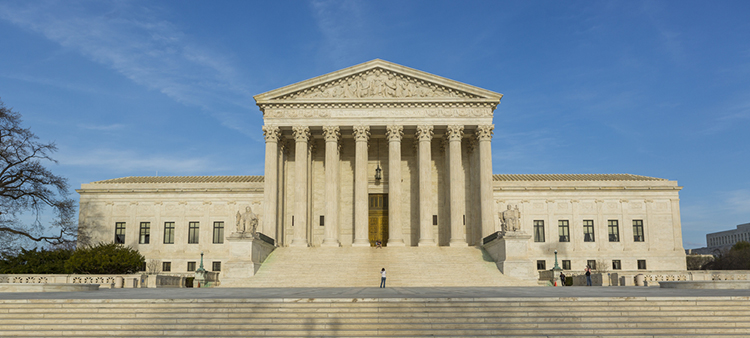Supreme Court accepts cases on appointment of SEC judges, retailer sales taxes, redistricting

Shutterstock
The U.S. Supreme Court granted review in 12 cases Friday, including a challenge to the appointment process for administrative law judges at the Securities and Exchange Commission.
At issue in the SEC case, Lucia v. SEC, is whether the judges are “inferior officers” under the appointments clause, rather than mere employees, report Reuters, Bloomberg News, SCOTUSblog and the National Law Journal. Inferior officers must be appointed by the president, the head of a federal agency or a court.
SEC judges are selected by the chief judge and approved by the SEC personnel office. But the SEC commission has since ratified the appointment of its current administrative law judges to ensure their actions going forward are valid, according to SCOTUSblog and the Wall Street Journal.
The dispute could have a reach beyond the SEC, according to Bloomberg. It could also affect the Federal Deposit Insurance Corp. and the Consumer Financial Protection Bureau, which have similar processes for appointing administrative judges.
The challenge was filed by Raymond Lucia, who was barred from the investment industry after the SEC accused him of overstating the research he used for his “Buckets of Money” strategy that he promoted in two books, the Wall Street Journal reports.
Other cases accepted by the court Friday involve a South Dakota law imposing sales tax on out-of-state internet retailers and redistricting in Texas.
The South Dakota law requires out-of-state retailers to pay sales taxes if they make at least 200 sales or at least $100,000 in sales.
The challenge urges the Supreme Court to overturn a 1992 decision holding that the dormant commerce clause bars states from collecting sales taxes from companies without a physical presence in the state, according to the National Law Journal, Bloomberg and SCOUTSblog. The case is South Dakota v. Wayfair.
Another case accepted on Friday challenges court decisions invalidating redrawn congressional and state legislative maps in Texas as racial gerrymanders, according to SCOTUSblog, the Austin American-Statesman and the Washington Post.
In September, the U.S. Supreme Court stayed federal court decisions requiring district redrawing. The vote was 5-4, with Justice Neil M. Gorsuch joining the conservative majority to grant the stay. The cases are both titled Abbott v. Perez.



